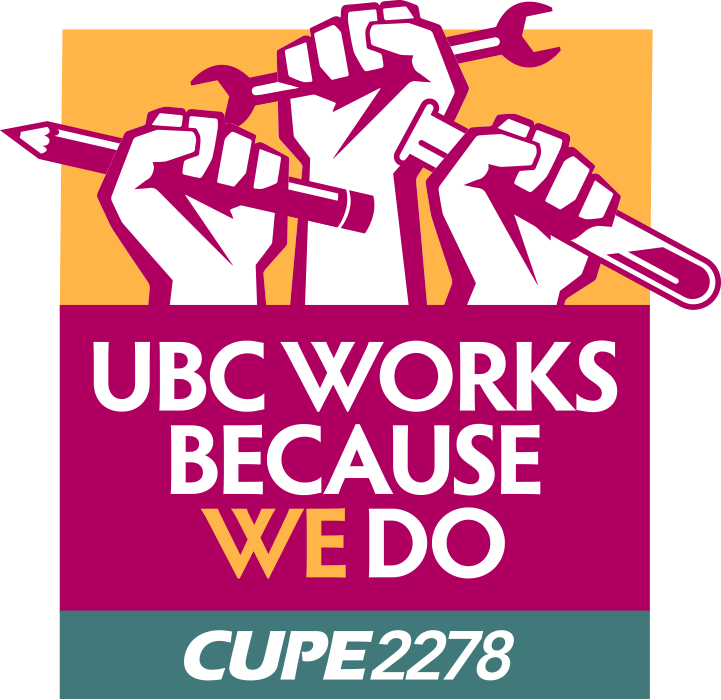Welcome!
In May 2022, a collective of UBC Computer Science (CS) graduate
students distributed surveys to the other students in the department
to determine how well students were being supported by their current
stipends. This explainer uses the survey data, and data from
government and university websites to demonstrate the current cost
of living situation in Vancouver (as of Dec 2022). See how students
are being supported, and compare your own budget to that of an
average CS graduate student by scrolling through the article for
more information!
What monthly expenses does a UBC CS grad student have?
Focusing on the basic expenses of a CS graduate student, this figure
shows the average proportion of a student' monthly expenses
separated into housing, food, social activities, health, utilities,
and commuting expenditures. As you can see, housing accounts
for more than half of the expenses!
How can we calculate inflation in Vancouver?
To understand the cost of living situation in Vancouver we will show
inflation using the consumer price index (CPI).
The CPI is a common econonomic metric used to measure the inflation
rate in a certain economic market (such as Vancouver). It is a
proportional metric used to compare prices items between years. For
example, if a banana cost $2 in 2002 and $4 in 2022, the banana' CPI
will be 200.
There are no units for this metric.
Inflation Rate in British Columbia
Here, we have the overall CPI for British Columbia since 2016. The
CPI is calculated by comparing the prices of that year to their
resepctive 2002 prices. The visualization here depicts the overall
upward trend of CPI indicating that inflation has been increasing
since 2002.
The 12-month % change
An overall change of inflation over the course of 6 years is not
that surprising. So let's instead compare the CPI change from year
to year. In this visualization, we can see how CPI changes year to
year. If you look at 2022, this rate of change of CPI is strikingly
fast compared to previous years.
Components
Let's look at the previous year a little most closely. In this graph
every line represents the change in CPI from October 2021 to
September 2022. We can calculate CPI for different components, such
as food and housing. Looks like in August of 2022, clothing was
overall less expensive than in August of 2021.
Housing!
Housing has one of the highest 12-month CPI over the last year! A
CPI increase of 8.26% means that last year's rent at $1600 would
cost you
$1732
this year. This is particularly concerning for graduate students
since we saw that housing is the largest monthly expense that
students have.
Food & Transport
The price of food and transport has also risen. This means that if
you bought a steak 🥩 for $10 last year, it would cost
you $11 this year!
Transportation 🚗 has the the overall highest 12-month CPI.
Transportation is a relatively smaller portion of the average CS
students' monthly budget. However, given these rapid increase
you cannot choose to live too far away.
OK. Well, what about CS grad student funding?
Each shape you see here depicts one student who filled out the cost
of living survey. And each shape represents the grad student's
program: master's, Ph.D. or Ph.D.-track. In this visualization, we
are looking at how a students' basic income [their research
assistantship (RA-ship) + teaching assistantship (TA-ship) + awards]
compares to the total expenses they incur.
Oh no!
From the survey, the funding of
47.5%
graduate students in UBC CS department cannot offset their basic
expenses! Students highlighted in red have more expenses than
income.
With additional support...
Some students receive additional financial support via
internships. All students that
receive this extra support
can afford all their basic expenses and perhaps even save a little
on the side.
However, there are students are who still
cannot overcome their expenses
with no extra support available.
There are also those with
"just enough" funding,
but they likely are unable to save since they just meet their
basic needs.
Use the filter drop-down to see how this data is spread amongst
degree program.
An unsafe feeling.
88.6% of the respondents to the cost of living
survey claims to feel uneasy with their current stipend amount.
Not a good sign!
How about you?
We're all in this together.
How do your expenses compare to that of an average computer science
graduate student? Use the sliders to input your own expenses (in
CAD) for each category and see how you stack up.
What about other universities?
Is the funding situation for graduate students universal across
other universities that are comparable to UBC?
Here, we depict how the funding for CS Ph.D. students at different
universities compares to the cost of living in the city that the
university is located in. The
negative side
represents the different yearly costs for a student and the
positive side
represents the yearly funding a student receives.
All currencies have been converted to CAD.
Does the funding offset the expenses?
Let's overlay the cost of living on top of the income that the Ph.D.
students receive. In some universities, like MIT, we see that
students actually earn more than they spend. But in universities,
like UBC and McGill, the expenses that students have is greater than
the income they receive. Boom! After overlaying the
cost of living, we can see that some universities
are in the negative, which is a problem for students!
Ordering the comparison...
After ordering the comparison, we see that students at UBC have the
greatest deficit when it comes to their income versus their expenses
compared to other universities. Oh no 😱!
